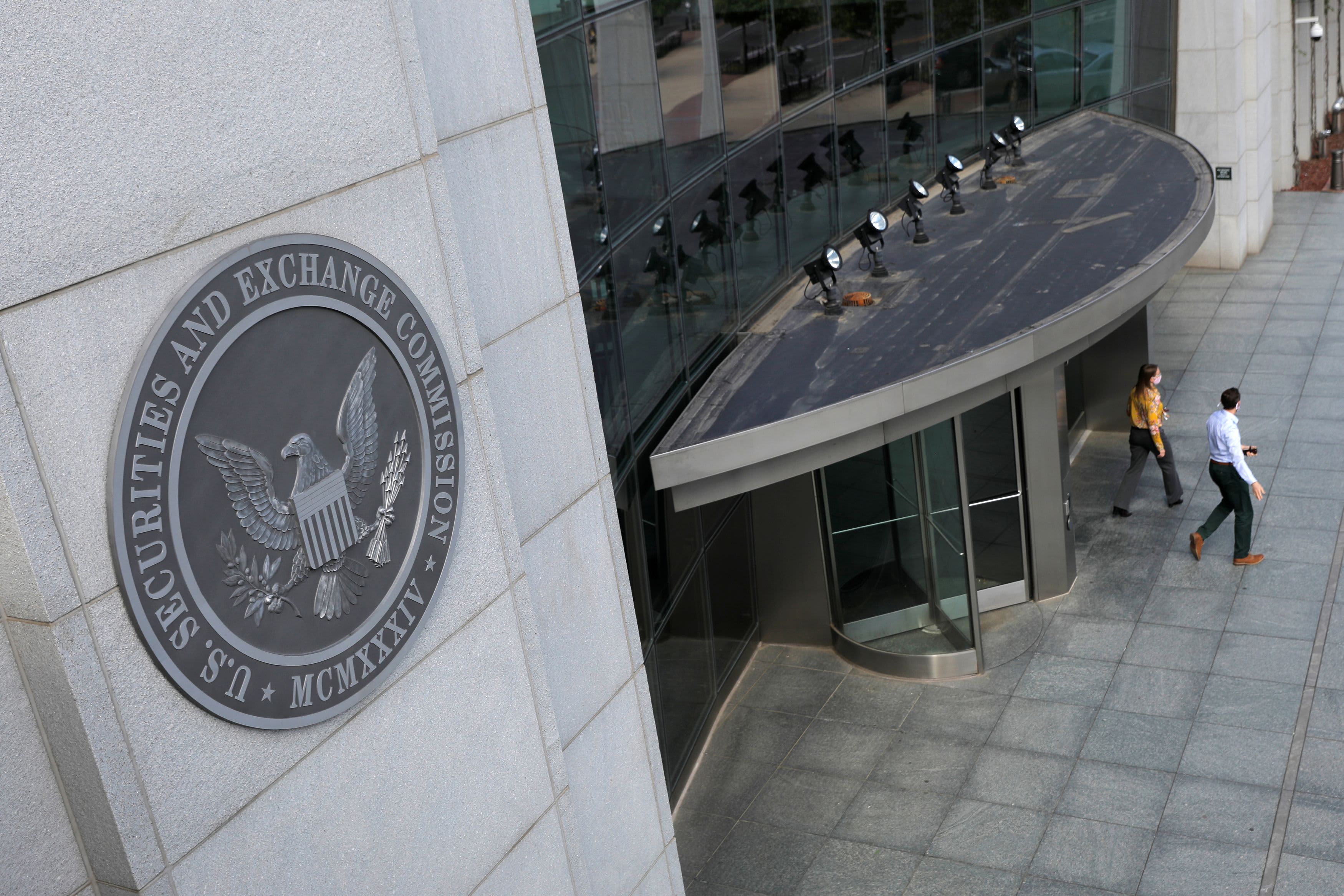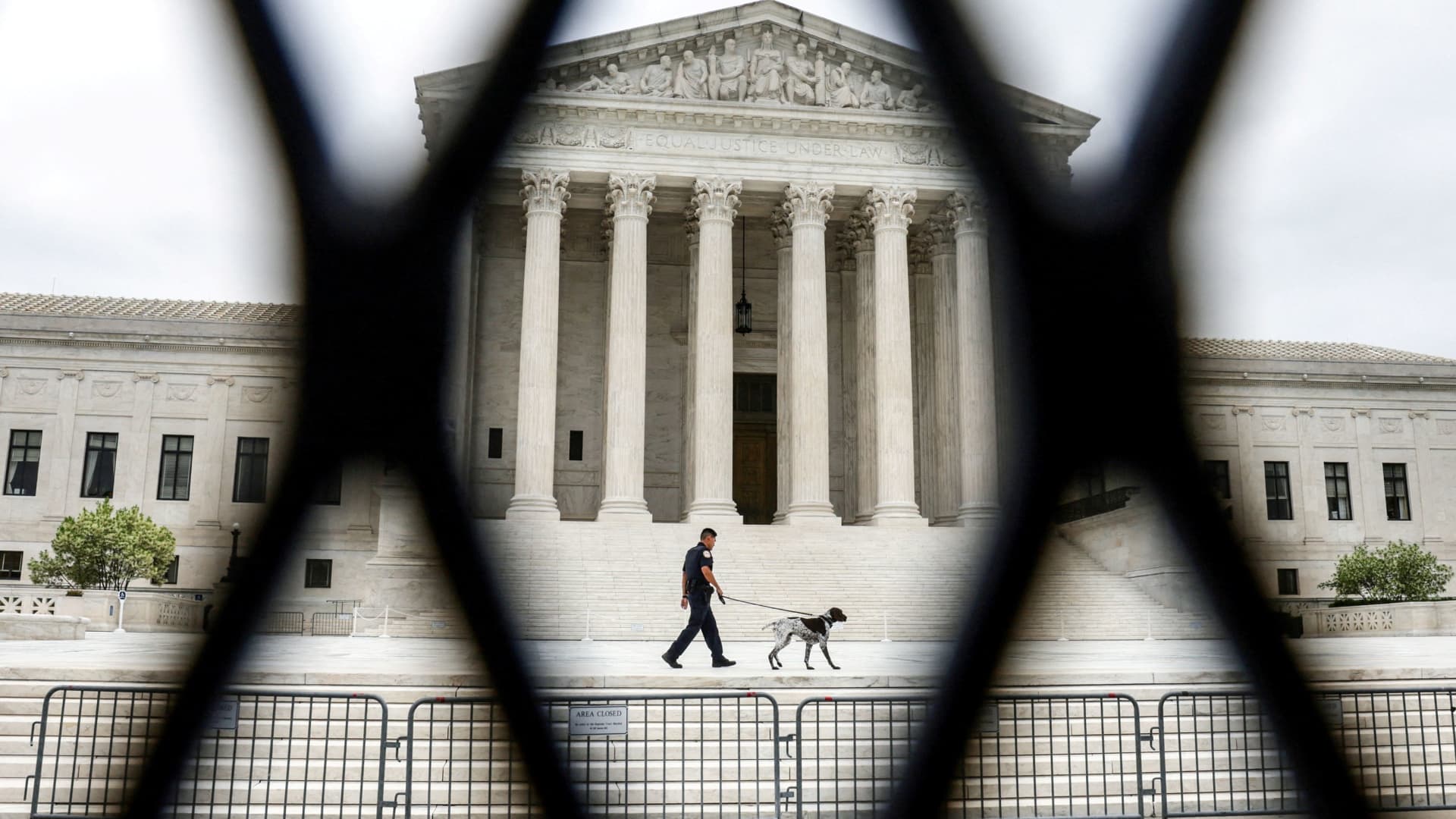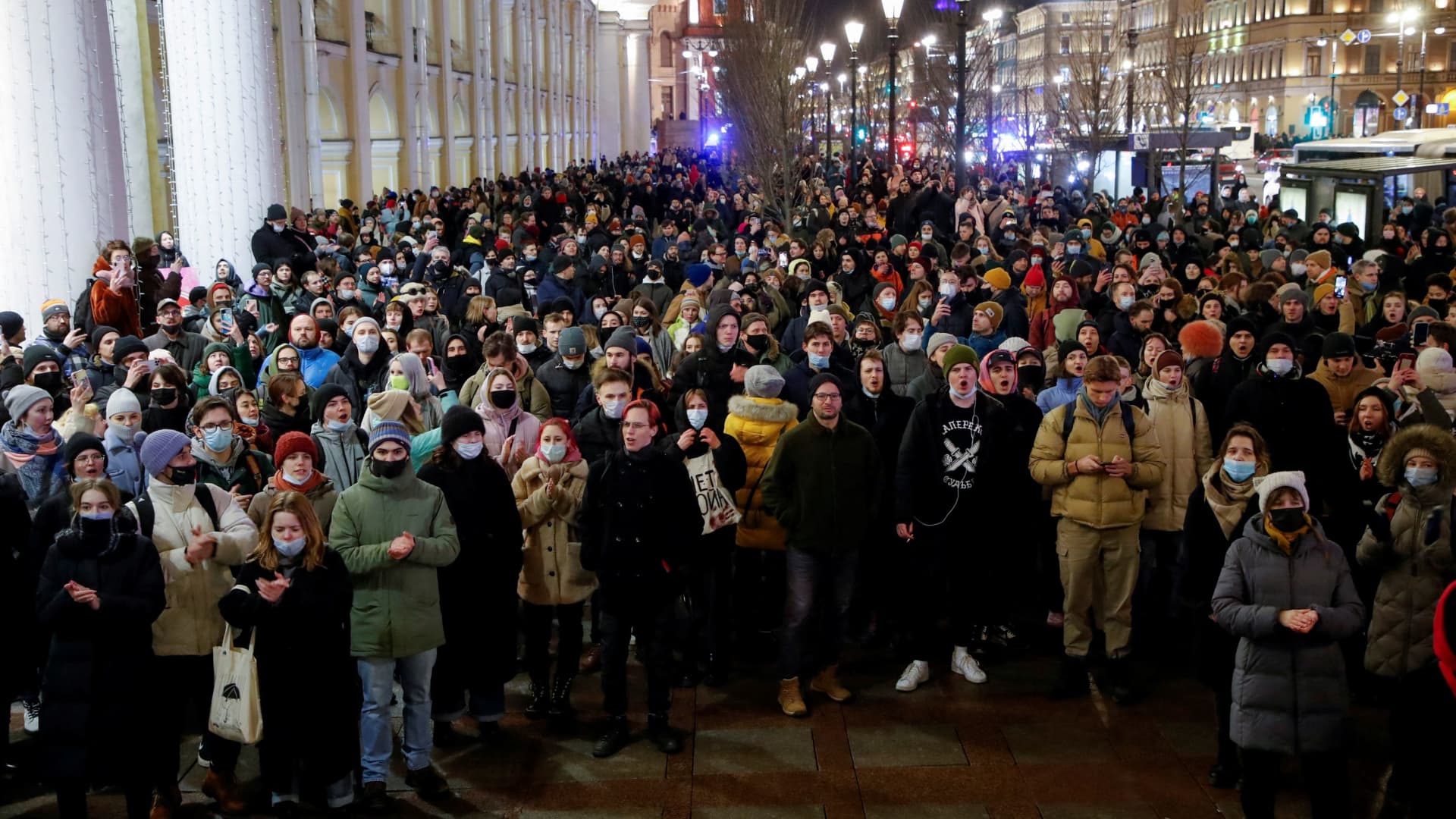China cuts key policy rate as post-Covid recovery fizzles; yuan hits 6-month low
The People's Bank of China cut its 7-day reverse repo rate for the first time since August.

The People's Bank of China (PBOC) building in Beijing on Dec. 15, 2022.
Bloomberg | Bloomberg | Getty Images
The People's Bank of China on Tuesday cut a key short-term policy rate as it deals with disappointing economic data in the country after a Covid-19 reopening failed to gain momentum.
The PBOC cut its seven-day reverse repurchase rate by 10 basis points from 2% to 1.9%, according to a central bank release, injecting 2 billion Chinese yuan ($279.97 million) through its seven-day repos.
A repurchase agreement (repo) is a type of short-term borrowing rate.
This is the central bank's first such move since August and follows the nation's largest banks cutting deposit rates last week, signaling that further monetary easing lies ahead.
The move comes ahead of the PBOC's medium-lending facility interest rate decision, which is expected to be released on Thursday. Meanwhile, the bank's loan prime rate is scheduled for release on June 20.
"Now we are going to see the Chinese [monetary] policy will become more supportive," Atlantis' Chief Investment Officer Yang Liu told CNBC's "Street Signs Asia."
"Basically what the Chinese government is [expected] to do [is] to try very hard to prop up the domestic consumption, especially in the private sector," she said.
UBS Global Wealth Management also expects further policy easing ahead, it said in its June outlook report.
"We believe monetary policy will continue to focus on keeping liquidity ample and credit growth steady," it said, predicting the central bank to deliver one to two "modest" reserve requirement ratio cuts this year.
It also expects to see cuts in the medium-lending facility rate (MLF) by 5 to 10 basis points in the second half of this year.
"Larger steps, however, could worsen FX pressure, which policymakers want to avoid, and come with diminishing returns if not accompanied by demand stimulus," it said.
Bonds, property stocks rally
Following the decision, China's sovereign bonds rose in price. The yield on the nation's 10-year government bond fell roughly 4 basis points and stood at 2.645%, marking the lowest it's been in nine months. Yields move inversely to prices, and a basis point is equal to 0.01%.
The dollar rose to 7.1610 against the onshore Chinese yuan shortly after the move Tuesday — and hovered at its weakest levels since November.
Chinese property stocks listed in Hong Kong also rose, with developer Logan Group jumping 4.5% and Country Garden rising 1.19% on hopes of further stimulus and policy easing ahead.
The central bank's decision to cut its seven-day reverse repo rate is seen as a "long overdue move," and hints at further easing ahead, Societe Generale economists Wei Yao and Michelle Lam said in a Tuesday note.
The decision is "probably not enough to stabilize the slowing growth momentum," the economists said, adding that it is "almost certain" there will be a medium-lending facility rate cut this week.
But monetary easing might not be enough to support weak demand that's been at the crux of China's growth concern. The waning demand in housing is due to a "permanent loss of confidence," the economists noted.
"Such demand won't be brought back by any rate cuts," they said, "Much more easing is needed, particularly fiscal backed by central [government] funding."

 JimMin
JimMin 































